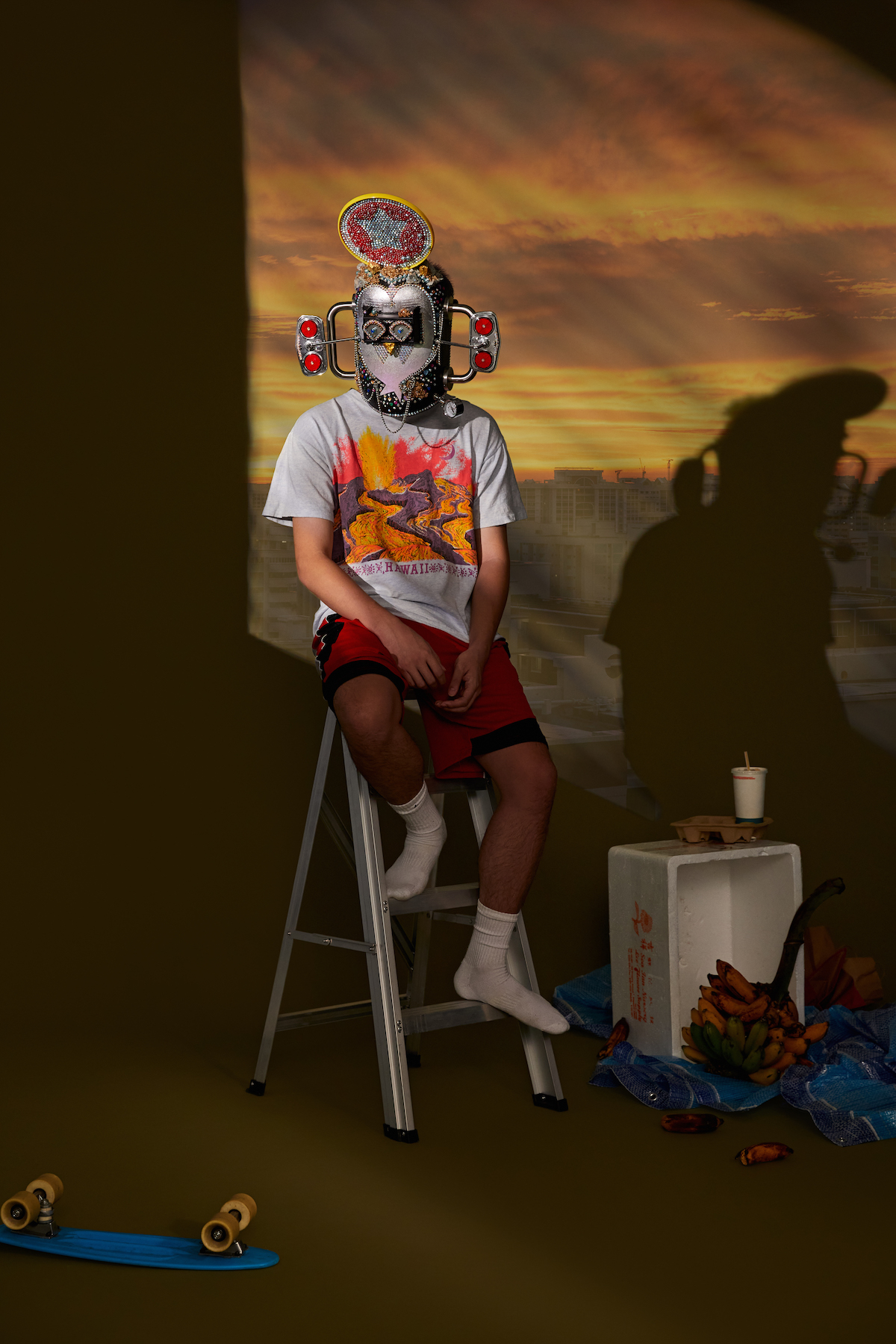
Khairullah Rahim speaks about the notions of visibility and their significances in his work
28 Mar 2022
Navigating perception is not a linear path – especially when various identity markers contribute to the manner in which one is received by their environment. As a gay ethnic minority, Khairullah Rahim bore the brunt of unwanted attention and experienced the sore end of the resultant power imbalance. His works question the effect of someone’s gaze on an individual and the toll it takes when effort is made to avoid that directed attention. But, the act of being visible is as daunting as the converse.
Tender Musk is a project that highlighted invisible professions like janitors, who are often overlooked and shunned, and was a commentary on classism. A humanoid figure was built from ‘dirty’ cleaning supplies and placed in public spaces to evoke imagery of a homeless person in plain sight who still remained unseen. This shed light on a considerable part of humanity that has been erased – preferably forgotten.
In another body of work, Pigeon (People Like Us), where he uses the reflective qualities of objects sourced from the working class neighbourhood of Boon Lay to create striking masks, the symbolic associations of light are examined in relation to visibility. “Many associate light closely with notions of safety, but there are also lights which illuminate more intensely on some than others,” said Rahim. Some may even want to avoid that ‘light’. And these pieces display this array of exploration with the masks’ reflectivity also acting as a shield to repel unwanted attention.
Mike Steyels from Neo Cha magazine interviews Khairullah Rahim, on his practice and recent works that shines a spotlight on the experiences of marginalised communities and notions of their visibility.